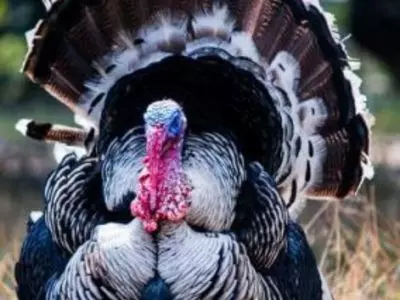No products in the cart.
Turkey
Can Turkeys and Ducks Live TOGETHER?
If you’re looking to raise birds you might be wondering if turkeys and ducks can live together. Can they share the same space? What kind of problems could arise if they do live together? We’ll discuss the similarities and differences between these two birds and provide tips on caring for them. Let’s dive in!
*This post may have affiliate links, which means I may receive commissions if you choose to purchase through links I provide (at no extra cost to you). As an Amazon Associate I earn from qualifying purchases. Please read my disclaimer for additional details.
Can Turkeys and Ducks Live Together?
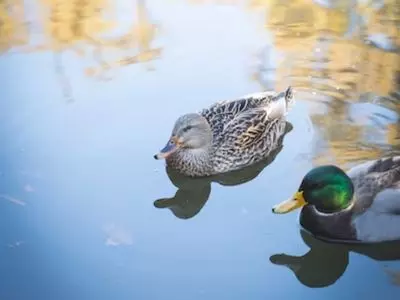
How to Care for Ducks and Turkeys Together
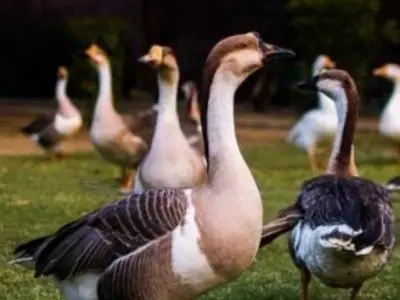
- Provide plenty of space. Both turkeys and ducks need plenty of room to move around, so give them a large enclosure.
- Offer different types of food. Ducks and turkeys are omnivorous so, it’s essential to provide a variety of food.
- Keep the water clean. Ducks love to splash around in the water, so their water area will need to be cleaned more often than the turkey’s area. Be sure to clean and refill the water regularly.
- Don’t overcrowd. Having too many birds in one space can lead to aggression, so it’s important not to overcrowd the enclosure.
- Train them early. If you start training turkeys and ducks when they’re young, they’ll be more likely to get along as adults. You can teach them to come when called, stay away from certain areas, or even perform tricks!
- Be prepared for changes. Even if you do everything right, there may be times when the turkeys and ducks don’t get along as well as you’d like. Be prepared to separate them if necessary and have a backup plan.
Similarities and Differences
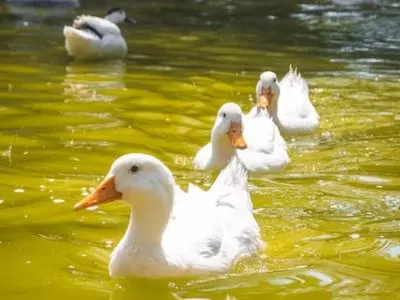
Differences
- For one, turkeys are much larger than ducks, with an average adult turkey weighing in at around 20 pounds compared to 4-5 pounds for an adult duck.
- Turkeys also have a much more pronounced brow, giving them a more aggressive appearance.
- Finally, turkeys are better at flying short distances, while ducks are better at flying long distances.
- Ducks also love to be in the water and around water while turkeys tend to stay on dry land.
Similarities
- Both types of birds have wings and feathers, allowing them to fly.
- They typically both like to stay in groups of the same bird. So you’ll often see a turkey with a group of turkeys and the same goes for a group of ducks.
- Turkeys and ducks are omnivorous and will eat insects, plants, and even small fish.
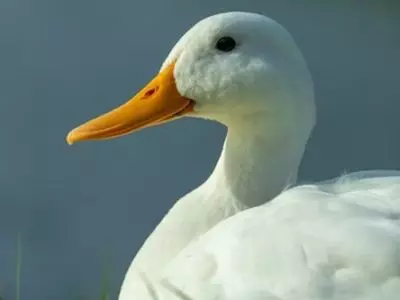
- Try to separate the two animals. If they are in the same enclosure, try to put up a barrier between them so they cannot see or reach each other.
- Provide each animal with food and water so they do not have to compete for resources.
- Make sure that the enclosure is large enough so that the animals have enough space to move around and are not overcrowded.
- Try to provide environmental enrichment for the animals, so they have something to do other than fight. This can include toys, perches, or anything else that will keep them occupied.
How to Tell if Your Turkey and Duck are Getting Along
Here are a few questions to ask yourself if you’re keeping ducks and turkeys together.- Do they spend time together? If they are hanging out together, then they are probably getting along.
- Do they eat together? If they share a food bowl or start to eat each other’s food, then they are probably getting along.
- Do they preen each other? Tending is a way of cleaning and grooming, so if they groom each other, they trust each other.
- Do they sleep together? If they snuggle up together to sleep, they feel comfortable and safe around each other.
- Do you ever see them fighting? If they are fighting then chances are they don’t get along.
